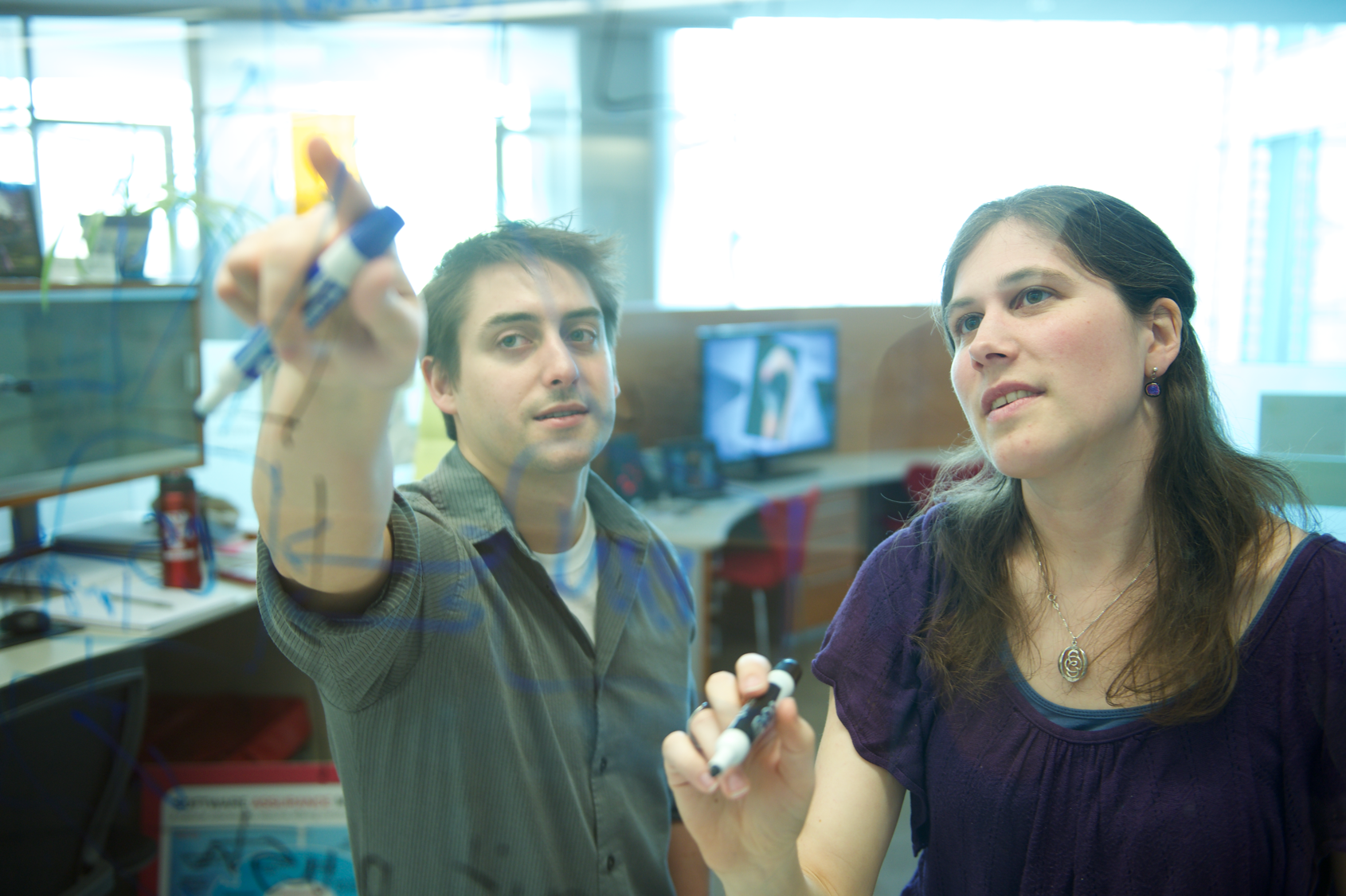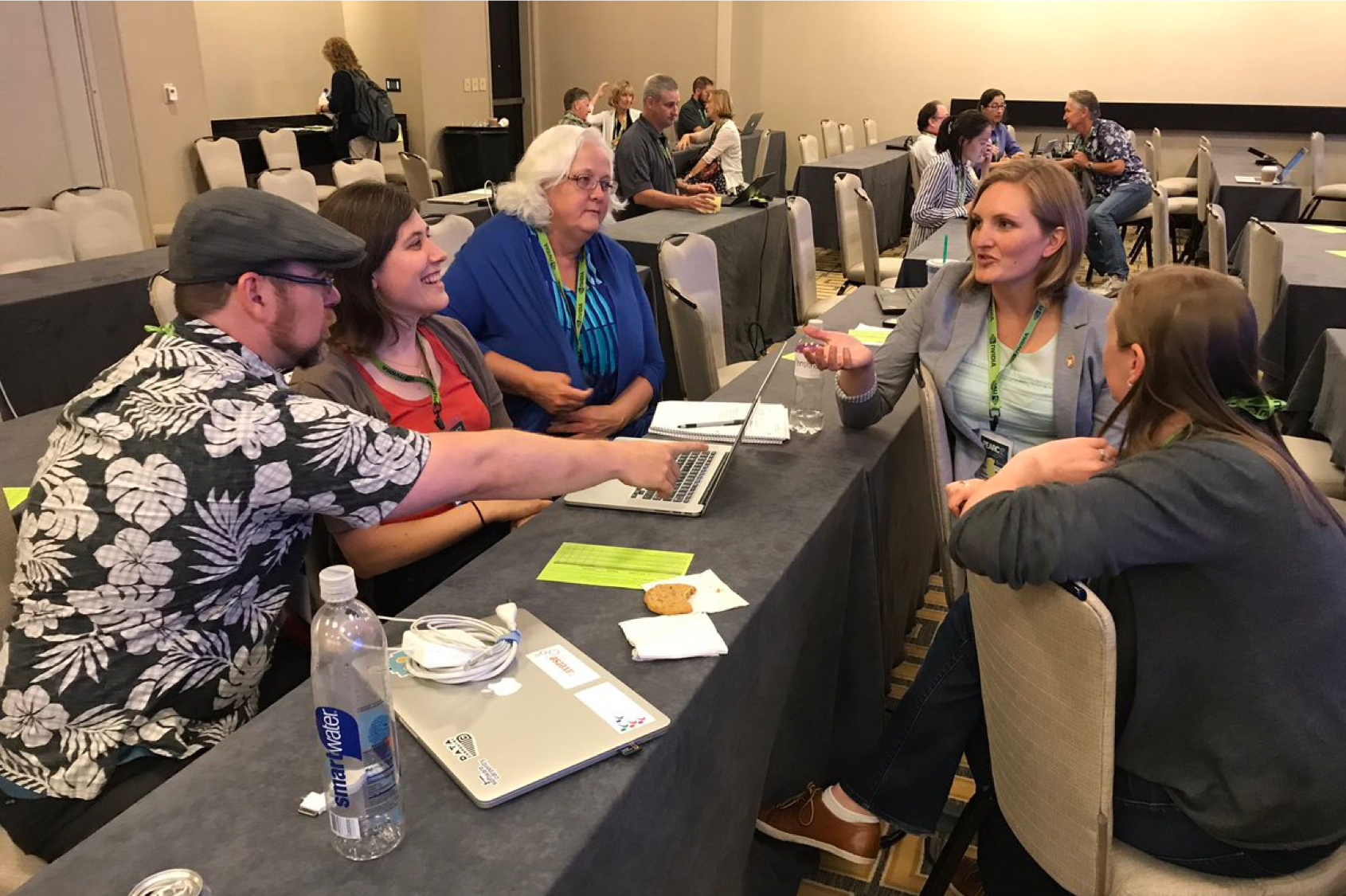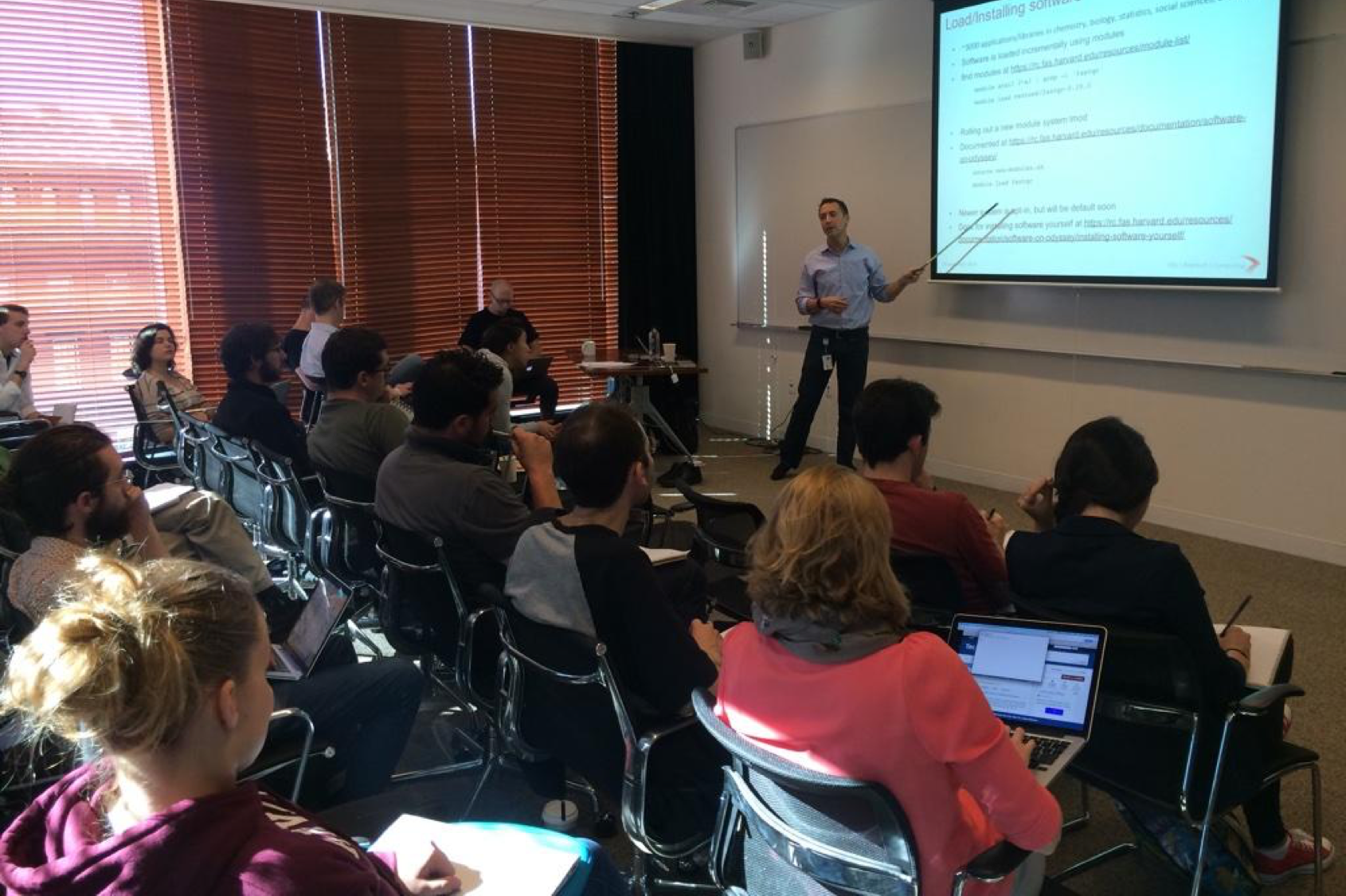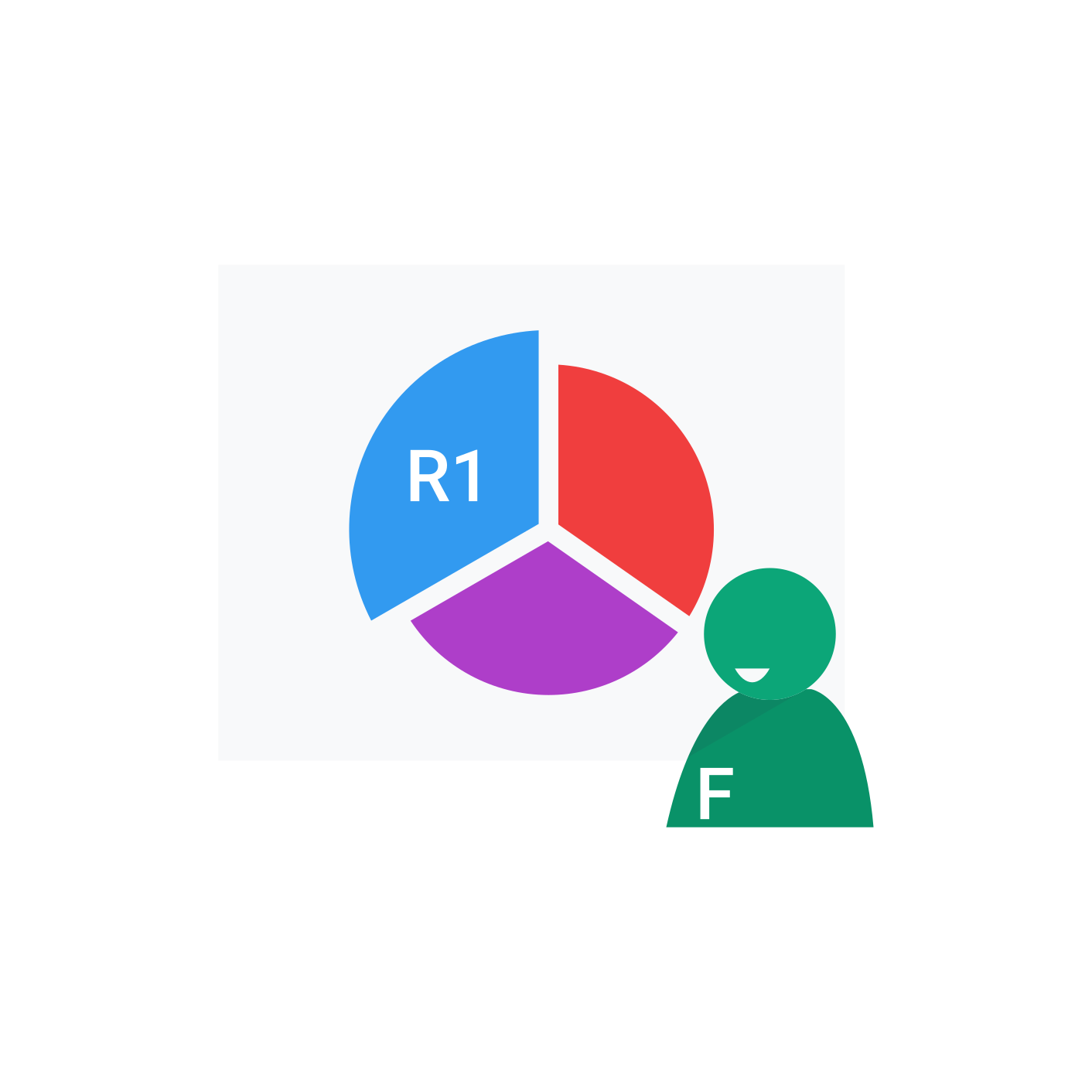Introduction and Major Ideas
- Goals, Motivation, and Approach for Facilitation Leading Practices Documentation
- What is Facilitation?
2.1 Philosophically
2.2 In Practice (defining the Major Activities of Facilitation)
2.3 What Skills and Experience Should Facilitators Possess? - Contributing to the Leading Practices Documentation
Goals, Motivation, and Approach for Establishing Facilitation Leading Practices
 |
 |
 |
 |
With a focus on truly accelerating scientific discovery, the ACI-REF (Advanced Cyberinfrastructure - Research and Education Facilitators) project is changing the way that campuses approach cyberinfrastructure solutions and support for scholarship. ACI-REF facilitators (“ACI-REFs”) possessing significant interpersonal skills and cyberinfrastructure-dependent research experience provide proactive and personalized consulting to help researchers identify the greatest potential impacts to their projects. Rather than requiring significant depth of expertise in computing or IT, themselves, ACI-REFs leverage a network of IT staff and their expertise to translate technical and procedural information into ACI solutions for researchers via various engagement, teaching, and relationship-building activities. Through a ‘teach-to-fish’ approach, dedicated ACI-REFs have enabled significant and previously unimagined scholarship outcomes across a variety of research domains.
As a project, ACI-REF hopes to bring the successful practices of “facilitation” to other academic institutions and interested entities, and across many types of cyberinfrastructure, by documenting the leading practices of ACI facilitation, herein. For simplicity, and because we hope that these leading practices will generalize beyond the institutions within the ACI-REF project, we refer to “Facilitators” rather than “ACI-REFs” throughout the remaining Facilitation Leading Practices content.
In particular, we hope that the documentation herein will achieve the following goals and enhance the impact of ACI services for scholarship:
- describe the mechanisms by which effective facilitation leads to positive impacts on scholarship
- inform the professional development of Facilitators
- assist supervisors in integrating, hiring for, and evaluating the Facilitator role
- refine the activities of other staff whose roles require aspects of facilitation
In the following portions of the Introduction, we define facilitation and establish goals of impact for Facilitators as compared to other traditional ACI staffing roles. Based upon this philosophical description, we establish the major categories of facilitation practices, referred to as Major Activities of Facilitation, and discuss implications for the necessary skills and background of effective Facilitators. Thus, the majority of the Facilitation Leading Practices documentation is presented as chapters (1-10) describing specific considerations and approaches for each activity. The entire set of documentation is also accompanied by Key Terms and Definitions of key terms and an Appendix with supplementary materials that are referred to within the chapters.
Importantly, the leading practices established in this documentation are meant to be continually revised, leveraging perspectives not only from the institutions contributing to the ACI-REF project but also from the increasing number of institutions implementing facilitation practices. We also acknowledge that many institutions may implement Facilitator roles within a variety of contexts. For example, some Facilitators may assist a variety of researchers with the use of a specific ACI resource, such as an institutional, large-scale (“HPC”) computing center, centralized network infrastructure, or data management service. Other Facilitators may be more closely associated with a specific subset of researchers, perhaps for a specific department, college, or research domain, and will more generally consult on the use of a variety of ACI resource types for methods specific to the research domain. Across such a palette of facilitators and specialization, we acknowledge that the Major Activities of Facilitation described herein will contribute in varying degrees to any single Facilitator’s specific goals and practices.
There are a number of other specific interpretations of the “facilitator” term with accompanying documentation of leading practices. Some of these refer more generally to the facilitation of group efforts in professional environments and other contexts. The documentation, has significant overlaps with other literature on “facilitators”, and Facilitators of ACI resources for research might also benefit from considering these additional resources.
Jump to top
What is Facilitation?
Philosophically
Facilitation is ...
Versus other ACI-related roles, a key component of Facilitation is to assist researchers in leveraging ACI resources for themselves, rather than performing research tasks on ACI systems for or as a contributor to a specific research project. Thus, while many Facilitators spend their time on a variety of tasks that are essential to providing ACI resources for research, the activities of Facilitation are best represented in the below goals.
- Promoting awareness of ACI resources and their usefulness
- Matchmaking of researchers and their needs with ACI resources and solutions appropriate for their specific needs, including resources on-campus and beyond
- Consulting with researchers on the integration of ACI resources for the greatest impact to their scholarship, including the personalized selection of approaches, processes, and tools
- Helping researchers to select from various analytical methods and third-party tools, considering validity, ease-of-use, and scalability
- Training and assisting researchers to help them optimally leverage ACI capabilities into the future
- Representing the user perspective to ACI service providers to inform short-term responsive changes and improvements to ACI resources
- Understanding the evolving ACI needs of the research community, in order to anticipate and advocate for necessary technology and human resources in the long-term
- Identifying and matchmaking potential collaborations between researchers based upon common research goals and/or uses of cyberinfrastructure
- Researching and understanding new ACI resources and capabilities
- Partnering with staff at other institutions and organizations to promote the sharing of expertise
All of these goals are enabled by the Major Activities of Facilitation, defined further below under In Practice.
Facilitation is NOT...
Though the above activities are within the defined scope of Facilitation throughout this documentation, many Facilitators may spend time on additional activities that are not within the defined scope of Facilitation and that are not described. Examples of such activities include, but are certainly not limited to:
- building/configuring cyberinfrastructure systems, managing software or middleware installations across systems, etc. (perhaps better defined in the roles of Systems Administrator, Network Engineer, etc.)
- development of software for specific groups (better defined as Researcher, Computational Scientist, Programmer, etc.)
- performing computational research work for specific groups, including running computation work on ACI resources for research groups, outside of testing/validating recommendations (better defined as Researcher, Computational Scientist, etc.)
- managing the roles of other staff at ACI resource-providing organizations
- managing special projects within ACI resource-providing organizations
In Practice
The bulk of the documentation of leading practices lies within chapters for each of the below Major Activities of Facilitation.

|
Getting Established |
Defining one’s role, including expectations of institutional support required for effective facilitation. Training and education of new facilitators. Establishing initial connections with other staff. |

|
Outreach |
Promoting awareness and understanding of the facilitator role and of ACI resources to potential users of ACI resources and to various administrators, including entities who exist within and external to your institution. Effectively targeting key audiences. |

|
Engagement with Researchers |
One-on-one and small-group meetings to understand researcher goals and practices, recommend appropriate ACI resources, identify potential knowledge gaps, and develop an overall plan for utilizing ACI resources. Record-keeping of engagements and following up. |

|
Implementing an ACI Plan |
Working with researchers to establish longer-term paths for the use of ACI capabilities for specific research projects, as needed. Following-up with researchers proceeding through a plan. Working with ACI resource providers for expertise and to accommodate necessary technical solutions. |

|
Assisting Researchers in the Use of ACI Resources |
Establishing proactive and reactive support routes for researchers who use ACI resources, including standards of response. Promoting learning and user empowerment in providing support for user-reported or observed issues. Leveraging external technical expertise. |

|
Education and Training of Researchers |
Identifying and leveraging existing learning resources for ACI topics and resources. Developing novel materials for in-person learning and self-directed learning, including both education (knowledge/awareness) and training (skills/practice). Leveraging established practices for effective teaching. |

|
Enhancing ACI Knowledge |
Proactively and reactively identifying available ACI resources. Gaining necessary knowledge and skills relevant to ACI resources. |

|
Facilitating Researcher Connections |
Promoting opportunities for peer-learning between researchers. Aiding in the formation of informal and formal collaborations. Liaising and matchmaking between users and ACI resource providers, where appropriate. |

|
Interfacing with ACI Resource Providers |
Building working relationships with other ACI staff. Liaising in the exchange of expertise between ACI resource staff, including intra- and inter-institutional connections. Translating user feedback to inform the enhancement and optimization of ACI Resources. |

|
Metrics and Assessment |
Continuous assessment of the effectiveness of facilitation practices, including the evaluation of facilitation impact as tied to user feedback, as well as evaluating changes in the patterns of ACI utilization by different users and groups, changes in user demographics over time, etc., to improve and remodel facilitation efforts and to assess overall impact. |
What Traits and Professional Background Should Facilitators Possess?
Based upon the major activities described above, there are a variety of specific skills, traits, and experiences important for serving as a Facilitator. Thus, individuals acting as Facilitators will be most effective if they already possess the qualities listed below. However, some of the knowledge pertaining to the below qualities can also be picked up as a new Facilitator comes into their role.
- excellent written and verbal communication skills
- comfortable and effective public speaking
- strong interpersonal and networking skills
- advanced skills in time management and context-switching
- prior experience conducting work on research projects that employ significant use of advanced cyberinfrastructure
- empathy for integrating advanced cyberinfrastructure into research
- ability to translate between the vocabulary of researchers and that of ACI technical staff
- ability to understand research publications
- desire to assist researchers from - and to learn about - a wide set of research areas, beyond their own domain of expertise
- desire to understand multiple aspects of a problem; persistence in identifying appropriate solutions and effectively communicating them to others
- demonstrated effectiveness in teaching technical information (formal or informal experiences), in one-to-one and one-to-many formats
- general desire for constant learning and ability to learn/adapt quickly
- interest in advancing personal knowledge of a range of advanced cyberinfrastructure technologies
Jump to: top
Contributing
Learn more about Contributing to this Documentation. We want your input!
Jump to: top